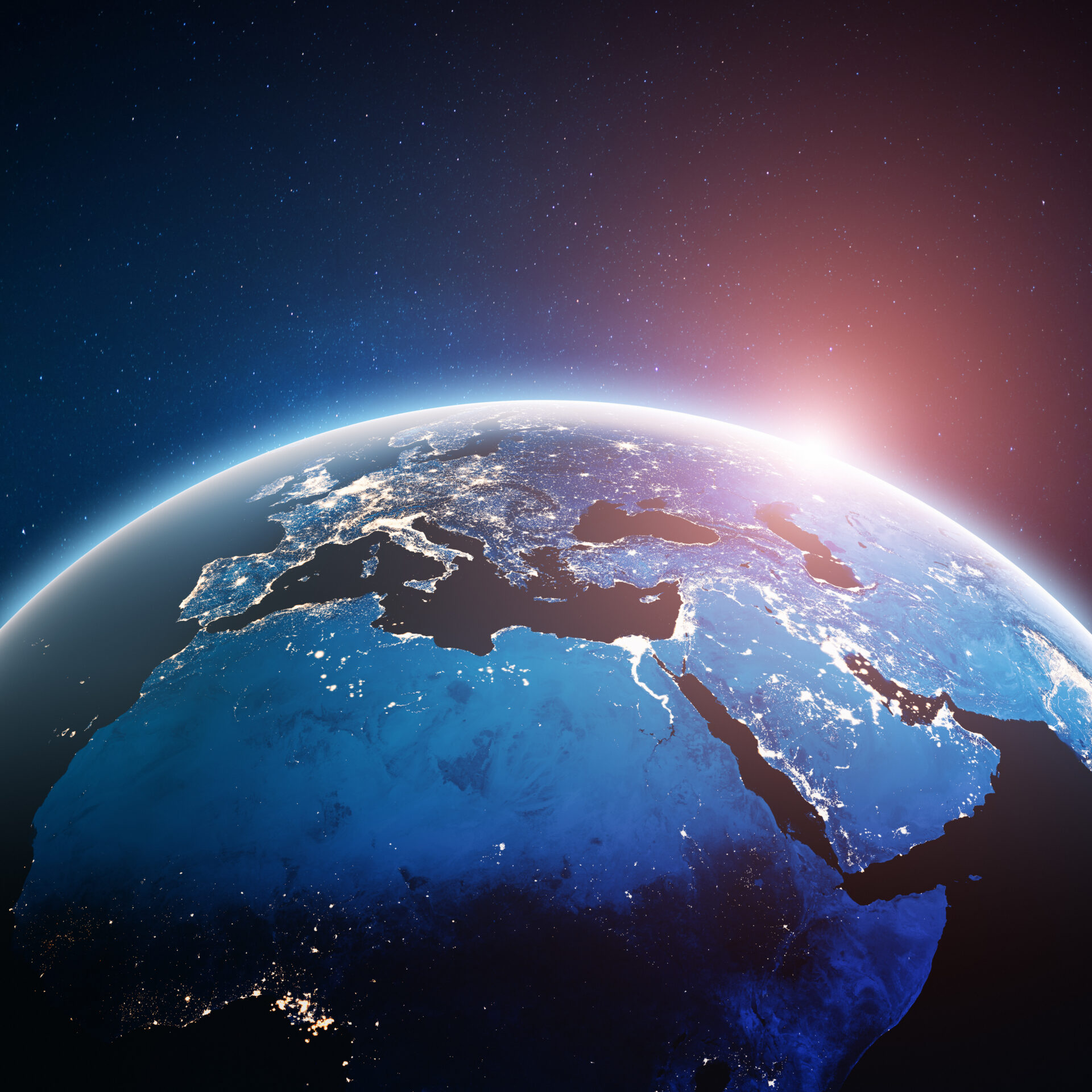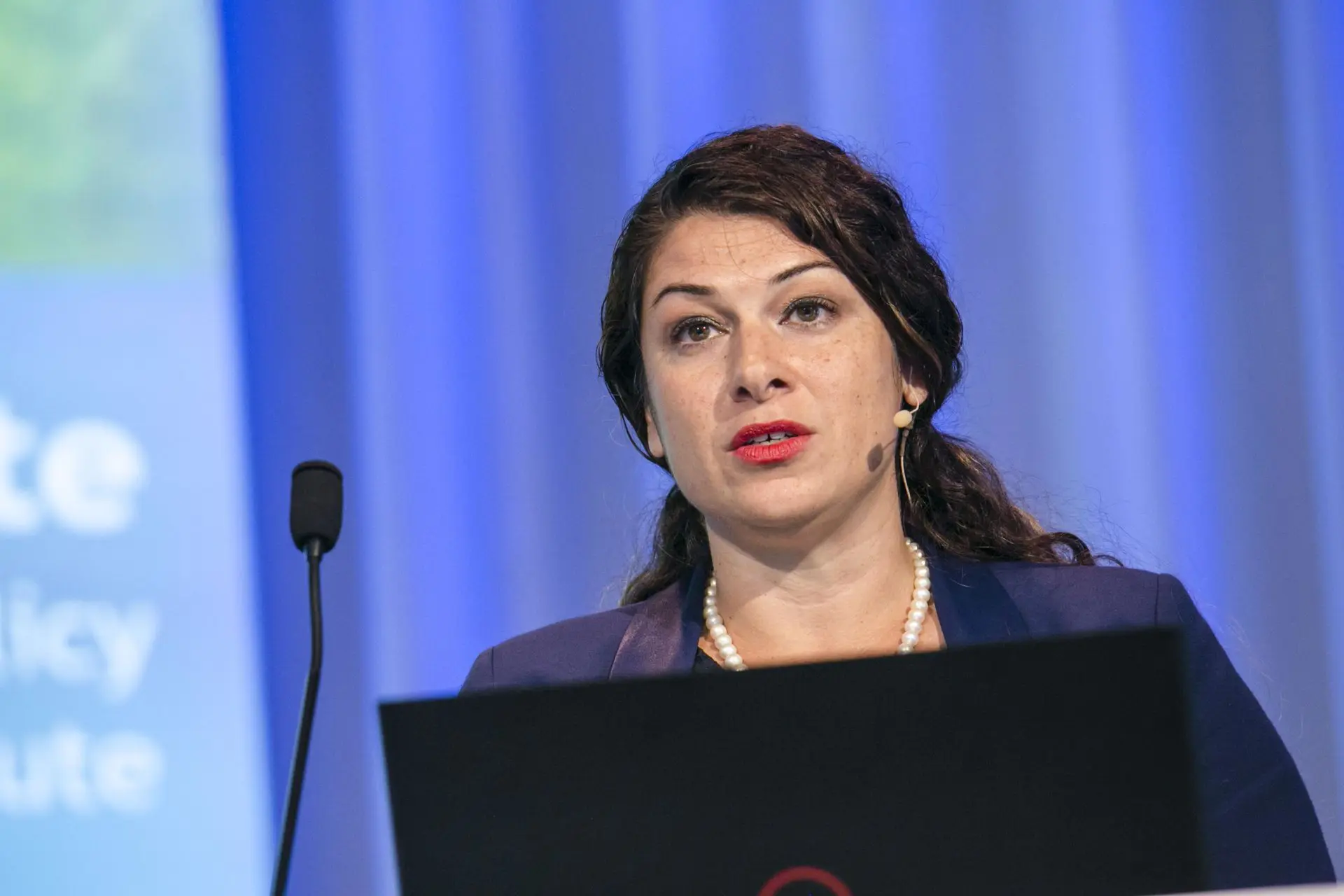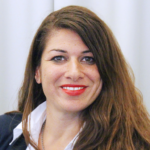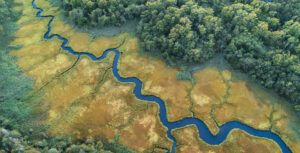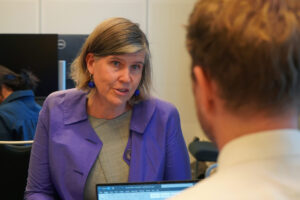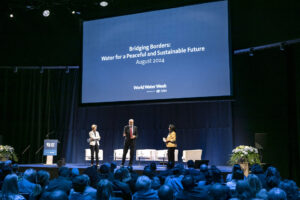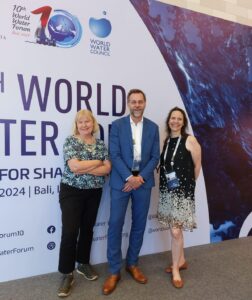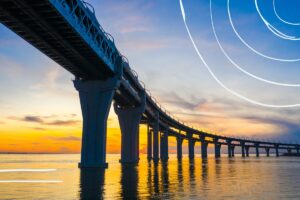The High-Level Panel on Water’s pathway in global processes will serve as an important moment for stocktaking and dialogue. It is set to focus on how we can best harness political momentum for collective action through ongoing International processes and water-related initiatives.
In an interview with Maggie White, Senior Manager of International Policies at SIWI, we understand what this High-Level Panel (HLP) is all about, who should attend and why?
The next UN Water Conference takes place in 2026. “But it is the 2030 agenda that we want people to keep in mind and have their eyes on,” says White.
What can participants look forward to at this year’s High-Level Panel compared to the previous years?
During the previous years our efforts with HLPs have been directed to bring in decision makers from climate change, food, biodiversity, health sectors to make the connection between water and their sector and highlighting how they are water dependent. This is because we felt that water was mainly addressed within the water community and not picked up enough in other sectors.
We’ve seen progress, with water gaining recognition across these sectors.
This year’s HLP will assess how water is being addressed across sectors and built into global processes. We’ll have representatives from health, past and future COP climate change presidencies, COP 16 biodiversity, and the upcoming UN Water Conference 2026. This continuity of representatives allows us to address accountability for what’s been done and what still needs attention.
The theme of World Water Week 2024 is Bridging borders: water for a peaceful and sustainable future. How will the HLP generate momentum towards peace building?
The HLP will generate momentum towards peacebuilding by highlighting the need for water in different spheres.
Whether it is health, climate change, biodiversity, sustainable development, we’re really addressing the need to cooperate around the shared water resources: cooperation in terms of the quantity and quality of water needed by different sectors and across borders.
While the goal of this HLP is not to generate a negotiated joint text among nation states, it provides an opportunity to invite stakeholders who are otherwise not present during dialogues. Here panellists and other participants can speak freely about what is working and what isn’t to then build partnerships.
There will be representatives from the Netherlands, Senegal, Tajikistan and the UAE. What is the link between these countries?
The Netherlands, Senegal, Tajikistan, and the UAE are linked by their leadership and active roles in global water governance. Tajikistan and the Netherlands have been particularly influential, having co-chaired the UN 2023 Water Conference. Tajikistan has sustained global water discussions through the International Water Decade 2018-2028 and the Dushanbe Water Process while the Netherlands contributed by initiating the Water Action Agenda, which has led to over 800 water-related commitments globally, accounting for 72 billion U.S. dollars.
As the UN 2026 Water Conference approaches, Senegal and UAE have put forward their candidacy to become co-chairs. The modalities of the co-chairing process will be confirmed by November-December.
For this reason, the HLP and World Water Week 2023 are very timely. They create space for meetings and collaboration between UAE, Senegal, Tajikistan and the Netherlands, and other stakeholders about this transition and building towards the success of the 2026 conference.
In addition to the HLP, there will be a workshop. Who can participate and what can they expect?
Everybody attending World Water Week on-site is welcome to attend the workshop which will be held at the Centre Stage after the HLP. Tables will be set-up thematically based on interactive dialogues: water and health, water and climate change, water and sustainable development, water and cooperation, and the Water Action Decade. The tables will be chaired by leading organizations of countries and have a rapporteur each.
During the workshops, participants can come and share their commitments which have been submitted to the Water Action Agenda or present other water related initiatives. Those who want to listen in, can do so as well.
The idea is to bring everybody around these tables and discuss what needs to be done for 2026 to advance their commitments and with whom – those that share the same interest or overlaps in initiatives to create more momentum. The outcomes will be shared to support the preparation of the upcoming UN 2026 Water Conference.
